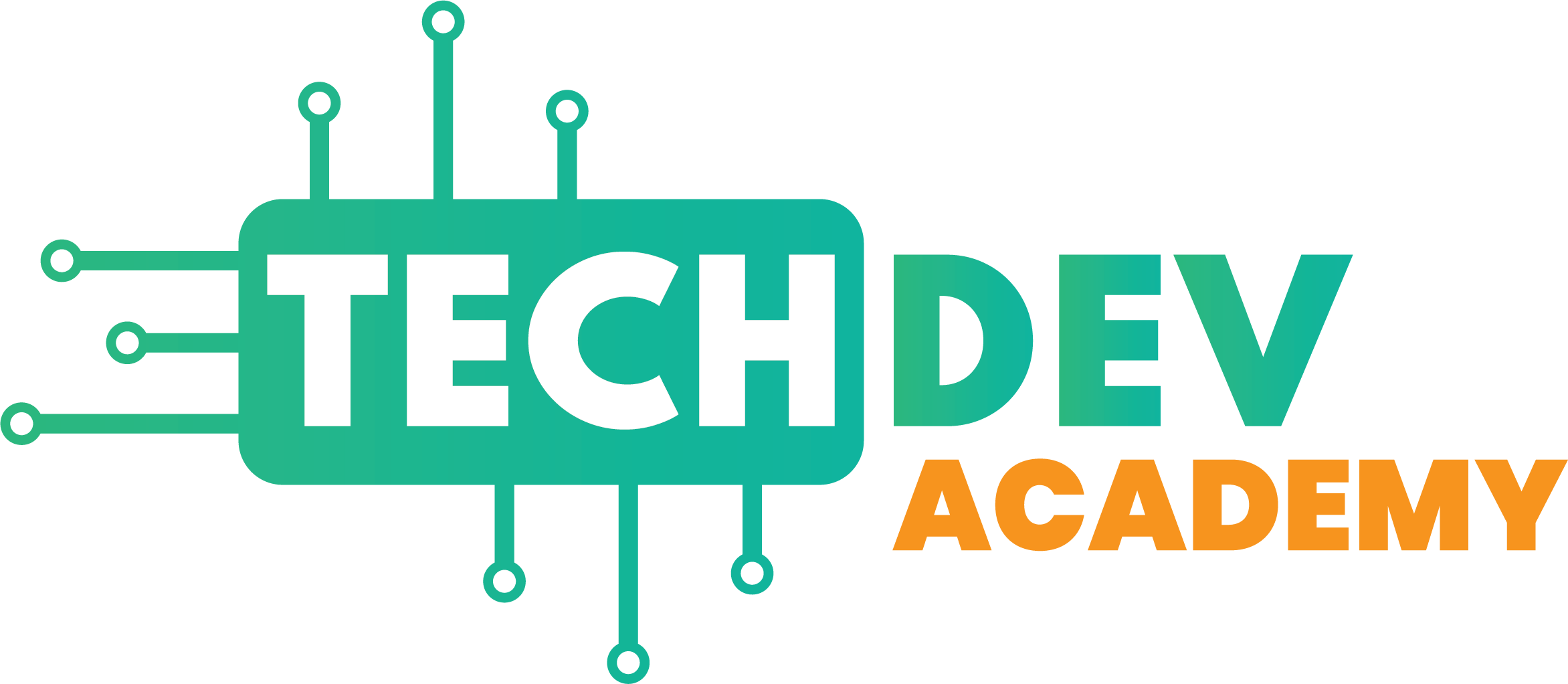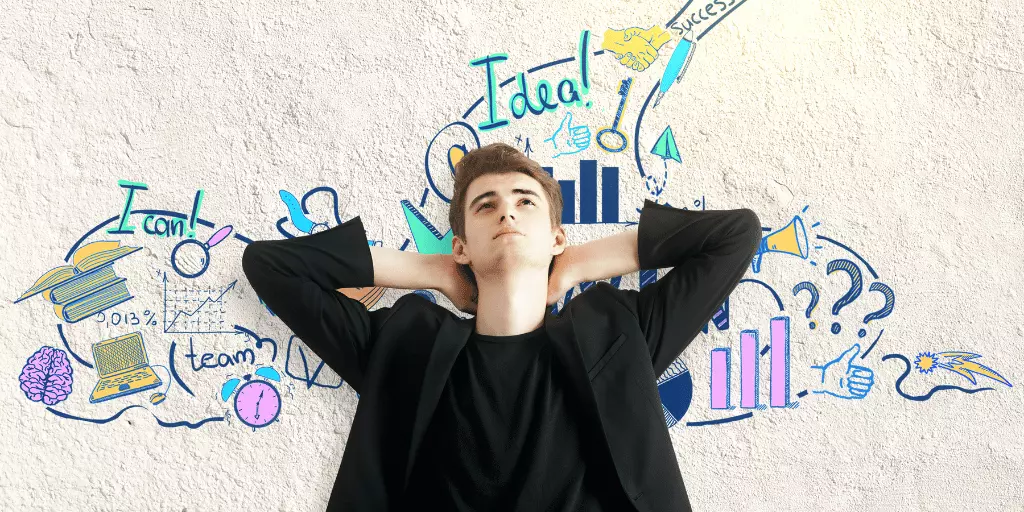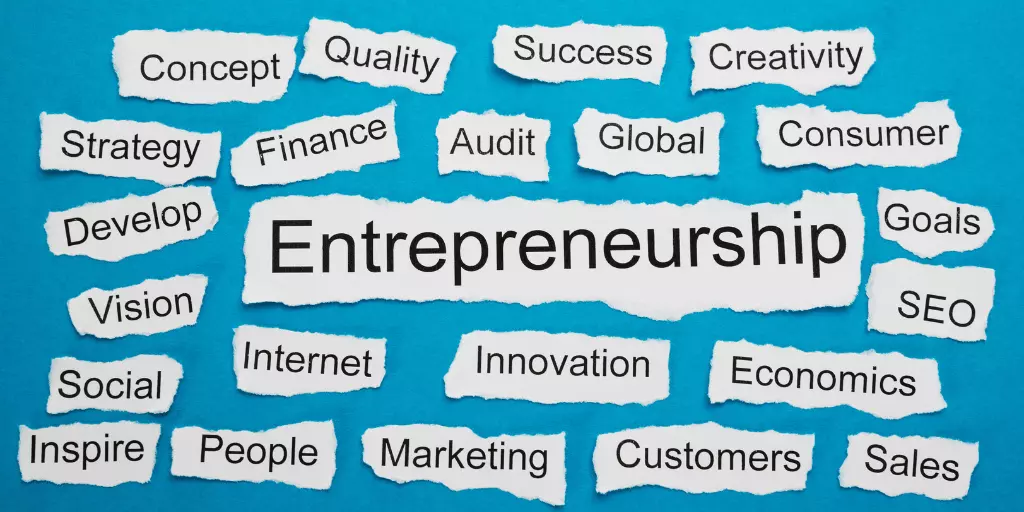For young aspiring entrepreneurs, stepping into the business world might feel challenging. However, breaking down the whole process into small manageable steps can make it easier to move forward. In this article, we have outlined five phases of entrepreneurship that an entrepreneur goes through during the course of setting up and progressing their business.
There might be individual differences in individual journeys but this overall structure can serve as a guide for young entrepreneurs like you who want to get their business off the ground. So let’s get right to it.
1. Discovery Phase: Generating Ideas and Finding Opportunities
Every entrepreneurial journey begins with an idea. Entrepreneurs use their creative minds to come up with innovative ideas and identify opportunities in their surroundings. Limited professional experience can actually become an advantage for young aspirants as they bring their fresh perspectives to the table. You can start by focusing on your academics, internships, and hobbies to generate a business idea.
Ask yourself these questions:
- What daily challenges do I face that can be solved with a new idea or solution?
- How can I turn my hobbies into a business that not only interests me but also fulfills some demands of other people?
- What new perspective my experiences have given me?
- How can I use my passions to create something that resonates with other people?
- What demographic should I target based on common interests and needs between you and them?
During this phase, it’s also important to conduct market research and understand your audience, industry trends, and competitors.
2. Conceptualization: Turning Ideas into Business Plans
The second of the phases of entrepreneurship is conceptualization. In this stage, entrepreneurs convert their ideas into business plans. They define the business concepts, choose a suitable location for the office (if necessary), and start considering patents or trademarks.
Following are some important questions to ask yourself in this phase:
- How’s my business idea unique? (Identifying a unique selling-point is crucial)
- How does my business address consumer problems or needs?
- What are the main features and benefits of my product or service?
- How will I engage with my audience?
- How should I price my product or service to ensure both quality and profitability?
In this phase, entrepreneurs also think of legal aspects like trademarking, obtaining licenses, and complying with regulations.
3. Resourcing: Getting and Managing Assets
The third phase is resourcing, where entrepreneurs start arranging financial, technical, and technological resources to get started with their venture. They explore various funding options and start building a capable team. Later can be done through hiring or outsourcing.
Questions to ask yourself at this stage are:
- How much money do I need and where to get it?
- What skills and human expertise do I need to bring my business to life?
- How can I distribute the assets among all aspects of my business efficiently?
Now let’s look individually at each of them.
Managing Financial Resources
No business can run without money. So entrepreneurs figure out where to arrange and manage it. They start budgeting for different things like inventory, office space, marketing, hiring, and other expenses that might arise.
It’s important to explore different funding options to fuel your business. Rather than just relying on traditional methods like personal savings and bank loans, you can also look out for alternative options like crowdfunding, venture capitalist investment, angel investors, or even government grants.
Human Capital
Once there’s a solid financial plan in place, the next step is to assemble a team to bring your business idea to reality. Entrepreneurs identify what skills and expertise are required for their business and hire or outsource people accordingly. Platforms like Linkedin, Upwork, and Fiverr are handy in finding freelance talent.
Not every new start can afford to hire full-time employees for their business. In such cases, hiring freelancing is usually a flexible and cost-effective solution.
Technology
Technology is another necessity that entrepreneurs need to arrange for. Business owners need to think about different tools like hardware, software, platforms, and other applications that their business needs. Other decisions like whether to create an e-commerce website and which analytics software to use also fall under this category.
You should manage these resources wisely according to business needs. This phase demands a bit of strategic planning. Any miscalculations in estimating the needed resources or managing them properly can lead to setbacks in business growth.
4. Realization: Turning Plans Into Reality
Another one of the phases of entrepreneurship is realization. In this phase, entrepreneurs use gathered assets to reach their target goals. This includes managing various business operations and adjusting them according to market feedback and changing customer preferences.
Important questions to ask oneself at this stage include:
- Which steps are required for a successful launch of my business?
- What daily operations and processes should be put into place?
- How can I manage finances, inventory, marketing, and customer service?
This stage can be broken down into the following subcategories for better understanding.
Successful Launch
To make your business launch successful, you need to take a number of steps. This includes creating and executing a marketing plan, finalizing your company website, establishing social media profiles, and organizing a launch event.
The question you should ask yourself here is what specific tasks and strategies you will use to make sure that your business launch creates excitement and awareness among potential customers.
Daily Operations and Process
Streamlining your business operations is necessary for the smooth running of your business. Different business operations include setting up financial management systems, establishing communications, addressing legal compliance, and many others.
What you should ask yourself here is what systems and procedures you should establish to maintain efficient daily business operations.
5. Reaping: Deciding What Comes Next
In the final stage of the entrepreneurial journey, business owners make strategic plans for the future of their venture. They decide whether they would expand, alter, or sell their business.
These decisions are made by considering various factors like profitability, personal goals, or new perspectives.
Some questions that you should ask yourself at this stage are:
- What are my future plans for the business?
- Should I change my company’s offering or structure?
- How can I determine if my business is sustainable?
By understanding these various phases of entrepreneurship, you can confidently pursue your dreams. Combine your passion with persistence and strategic approach and you’ll be able to master the business landscape and handle any challenge that might come your way. We are rooting for you!



